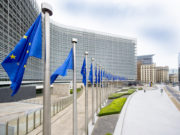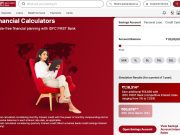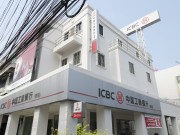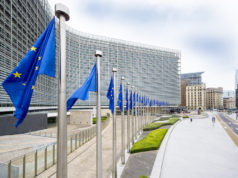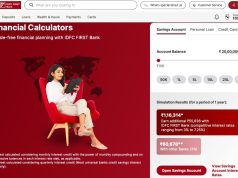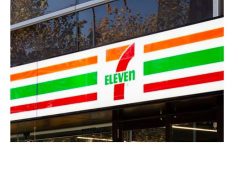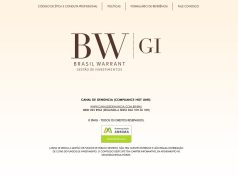Singapore Banks Complete Interest Rate Benchmark Transition from SIBOR & SOR to Singapore Overnight Rate Average (SORA) on 31st December 2024, with 87,000 SIBOR-Linked Retail Loans, Transition Exercise Started in 2019, SORA is Now the Standard for Singapore Dollar Loan Products Which is More Robust & Transparent than SOR & SIBOR, $2.2 Trillion Current Value for SORA in Derivatives, Bonds & Loans
27th February 2025 | Hong Kong
Singapore banks have completed the interest rate benchmark transition from SIBOR & SOR to Singapore Overnight Rate Average (SORA) on 31st December 2024, with the transition of around 87,000 SIBOR-linked retail loans. The SORA transition exercise had started in 2019. SORA is now the standard for Singapore Dollar (SGD) loan products which is more robust & transparent than SOR & SIBOR, and has $2.2 trillion current outstanding value for SORA in derivatives, bonds & loans. The Association Banks in Singapore (25/2/25): “The Steering Committee for SOR & SIBOR Transition to SORA (“SC-STS”) announced the successful completion of the transition from the Singapore Dollar Swap Offer Rate (“SOR”) and Singapore Interbank Offered Rate (“SIBOR”) to the Singapore Overnight Rate Average (“SORA”). This comes after banks successfully completed the SIBOR to SORA transition on 31 December 2024, which involved the transition of about 87,0001 retail loans out of SIBOR. The SIBOR transition involved mainly banks’ retail customers, as SIBOR was largely used in retail mortgage loans. The SC-STS had conducted a public education campaign to provide retail customers with information on the SIBOR transition and options that would best meet their needs. This led to more than half of the SIBOR retail loans being actively transitioned out of SIBOR, with the remaining 40,000 loans undergoing automatic conversion in October 2024 to reference SORA. The completion of the SIBOR to SORA transition, following the completion of the SOR to SORA transition on 30 June 2023, marks the conclusion of the overall SOR and SIBOR interest rate benchmark transition exercise which began since 2019. This was part of the global benchmarks reforms to transition away Interbank Offered Rate (“IBOR”) benchmarks, which were based on the non-binding quotes by banks, to more robust overnight interest rate benchmarks based on actual transactions. Since the establishment of the SC-STS in 2019, the SC-STS has worked closely with industry stakeholders and implemented initiatives to standardise and deepen interest rate markets based on SORA and facilitate the smooth conversion from legacy SOR and SIBOR contracts to SORA. SORA is now the de facto standard for Singapore Dollar loan products, as envisaged by the SC-STS at the start of the transition process. SORA, derived from actual overnight interbank lending transactions in Singapore, is a more robust and transparent benchmark than SOR and SIBOR. SORA is widely adopted by financial institutions and borrowers, and the SORA market has since grown to more than S$3 trillion in outstanding derivatives, bonds, and loans, comparable to the size of the SOR and SIBOR market before the start of the transition exercise … … With the successful completion of the interest rate benchmark transition to SORA, the work of the SC-STS will draw to a close. The SC-STS would like to thank all industry participants who have provided valuable support and feedback over the years, through the public consultations and other channels.” In 2020, the Central bank of Singapore, Monetary Authority of Singapore (MAS) has announced several initiatives to support the adoption of the new interest rate, the Singapore Overnight Rate Average (SORA). The new SORA rate was introduced to replace the existing interest rates benchmarks in Singapore – the Singapore Interbank Offer Rate (SIBOR) and the Swap Offer Rate (SOR). In 2024 August, the Singapore Exchange (SGX) has listed the new 3-Month Singapore & Tokyo Overnight Rate Average futures contract (SORA & TONA) to allow investors to trade & hedge interest rate.
“ Singapore Banks Complete Interest Rate Benchmark Transition from SIBOR & SOR to Singapore Overnight Rate Average (SORA) on 31st December 2024, with 87,000 SIBOR-Linked Retail Loans, Transition Exercise Started in 2019, SORA is Now the Standard for Singapore Dollar Loan Products Which is More Robust & Transparent than SOR & SIBOR, $2.2 Trillion Current Value for SORA in Derivatives, Bonds & Loans “
Han Kwee Juan, Co-Chair of SC-STS: The transition from SOR and SIBOR to SORA was a challenging one, especially given the number of outstanding legacy contracts. I am heartened to see that the SC-STS and the industry was able to come together and play an instrumental role to complete the transition. SORA has been well-adopted by market participants, and is widely used across derivatives, loans, and bonds. Customers are also now more familiar with and have confidence in SORA-based products.”
Leong Sing Chiong, MAS Deputy Managing Director and SC-STS Co-Chair: “The successful completion of the transition is the result of close collaboration across the financial industry. The shift towards a more transparent and robust benchmark will enhance trust and confidence for everyone that uses Singapore Dollar interest rates, and strengthen the resilience of the Singapore Dollar market.”
Singapore Central Bank MAS Announces Initiatives to Support New Interest Rate – Singapore Overnight Rate Average (SORA)

6th August 2020 – The Central bank of Singapore, Monetary Authority of Singapore (MAS) has announced several initiatives to support the adoption of the new interest rate, the Singapore Overnight Rate Average (SORA). The new SORA rate was introduced to replace the existing interest rates benchmarks in Singapore – the Singapore Interbank Offer Rate (SIBOR) and the Swap Offer Rate (SOR).
New Initiatives to Support SORA
The new initiatives includes launching SORA-based Floating Rate Notes, providing Compounded SORA Rates and SORA Index, designating SORA as a financial benchmark under the Securities Futures Act (SFA) and compliance with the IOSCO Principles.
New Initiatives:
- Launching SORA-based Floating Rate Notes to promote liquidity, SORA-benchmarking and as a Pricing reference.
- Provide Compounded SORA Rates and SORA Index to promote transparency and data availability
- SORA becomes a financial benchmark under Securities Futures Act (SFA)
- Compliance with IOSCO Principles (International best practices)
What is SORA – Singapore Overnight Rate Average
SORA stands for Singapore Overnight Rate. It is defined as the volume-weighted average rate of borrowing transactions in the unsecured overnight interbank SGD cash market in Singapore between 8.00am and 6.15pm.
SORA for a given business day, will be published by 9.00am on the next business day.
Learn More:
- SORA Interest Rate Benchmark
- SORA Features & Calculation Methodology
- Singapore Interest Rates History
Moving from SIBOR and SOR to SORA
In August 2019, the Association of Banks in Singapore (ABS) and the Singapore Foreign Exchange Market Committee (SFEMC) had recommended SORA as the most suitable and robust benchmark to replace the SGD Swap Offer Rate (SOR) for SGD interest rate derivatives, given the likely discontinuation of LIBOR after 2021.
At the same time, MAS had also established an industry-led Steering Committee from key banks, industry association and MAS to provide strategic direction and oversee the transition from SOR to SORA. The steering committee is led by appointed Chairman, Samuel Tsien, who is the Group CEO of OCBC Bank and ABS Chairman and 14 other members including Jacqueline Loh, Deputy Managing Director, Markets and Development of MAS.
Steering Committee
| S/N | Member | Representatives |
| 1 | OCBC | Samuel Tsien (Chairman) |
| 2 | Monetary Authority of Singapore (MAS) | Jacqueline Loh |
| 3 | Barclays Bank | Felix Green |
| 4 | Citicorp Investment Bank | Jose Luis Yepez |
| 5 | DBS Bank | Andrew Ng Wai Hung |
| 6 | Deutsche Bank | David Kevin Lynne |
| 7 | HSBC Bank | Anthony William Cripps |
| 8 | JP Morgan Chase Bank | Brijen Puri |
| 9 | Maybank | Dr John Lee Hin Hock |
| 10 | Standard Chartered Bank | Daniel Koh Kok Yu |
| 11 | United Overseas Bank | Chan Kok Seong |
| 12 | Association of Corporate Treasurers (Singapore) (ACTS) | Goh Seng Ti |
| 13 | Investment Management Association of Singapore (IMAS) | Jenny Sofian |
| 14 | Life Insurance Association of Singapore (LIAS) | Nishit Piyush Majmudar |
| 15 | Singapore Foreign Exchange Market Committee (SFEMC) | Lam Kun Kin |
1. SORA-based Floating Rate Notes: Liquidity, Benchmarking and Pricing Reference
Starting from 21st August 2020, MAS will issue SORA-based floating rate notes (MAS FRN) on a monthly basis.
This will provide a wider range of money market instruments that are used to manage banking system liquidity. The notes will also facilitate using SORA as a floating rate benchmark, providing pricing reference for SORA cash products and hedging activities through the SORA derivatives market.
2. Compounded SORA Rates and SORA Index: Transparency and Data Availability
MAS will enhance transparency and data availability on SORA, including publishing key features, calculation methodology and daily release of key statistics. SORA rates for 1 month, 3 month, 6 months and a SORA Index will facilitate calculation of Compounded SORA over specific periods.
Both the Compounded SORA rates and SORA Index will provide market participants with a standardised and transparent basis to derive rates for given tenors.
3. SORA – Financial Benchmark under SFA Act
MAS has designated SORA as a financial benchmark under the Securities and Futures Act (SFA).
This will ensure that regulatory and enforcement powers, including criminal and civil actions, can be taken against any market misconduct relating to SORA. This will also safeguard the integrity and robustness of SORA, given its growing role as a key interest rate benchmark for SGD financial markets.
4. SORA Compliance with IOSCO Principles
MAS has issued a Statement of Compliance with the IOSCO Principles for Financial Benchmarks (IOSCO Principles) for SORA.
Compliance with IOSCO Principles means that the administration of SORA meets international best practice relating to benchmarks administration, which will generate broader market confidence by both domestic and international market participants in the use of SORA.
About IOSCO The International Organization of Securities Commissions (IOSCO) is the international body that brings together the world's securities regulators and is recognized as the global standard setter for the securities sector. IOSCO develops, implements and promotes adherence to internationally recognized standards for securities regulation. It works intensively with the G20 and the Financial Stability Board (FSB) on the global regulatory reform agenda. IOSCO was established in 1983. Its membership regulates more than 95% of the world's securities markets in more than 115 jurisdictions; securities regulators in emerging markets account for 75% of its ordinary membership.
Jacqueline Loh, Deputy Managing Director, MAS: “These initiatives mark an important milestone in supporting broad-based adoption of SORA in SGD financial markets. They complement the recently announced industry proposal to shift to a SORA-centered SGD interest rate market, by enhancing the robustness of SORA and supporting the development of deep, liquid and efficient SORA markets.”
List of Reporting Banks for SORA (Updated August 2020):
- ABN AMRO Bank
- Australia and New Zealand Banking Group
- Barclays Bank
- BNP Paribas
- Chang Hwa Commercial Bank
- CIMB Bank
- Citibank
- Commerzbank
- Credit Agricole Corporate & Investment Bank
- DBS Bank
- Deutsche Bank AG
- HL Bank
- Industrial and Commercial Bank of China
- ING Bank
- KBC Bank
- Malayan Banking Berhad
- Mizuho Bank
- MUFG Bank
- National Australia Bank
- Natixis
- Oversea-Chinese Banking Corporation
- Standard Chartered Bank
- Hongkong and Shanghai Banking Corporation
- United Overseas Bank
About Monetary Authority of Singapore 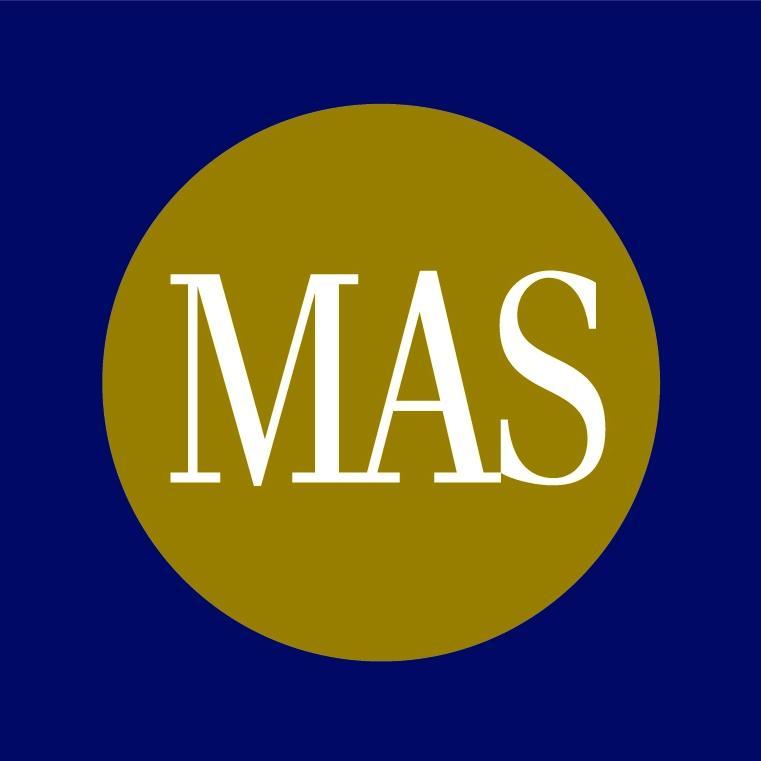 (MAS)
(MAS)
The Monetary Authority of Singapore (MAS) is Singapore’s central bank and integrated financial regulator. The Monetary Authority of Singapore (MAS) promotes sustained, non-inflationary economic growth through appropriate monetary policy formulation and close macroeconomic surveillance of emerging trends and potential vulnerabilities.
As an integrated financial supervisor, MAS fosters a sound financial services sector through its prudential oversight of all financial institutions in Singapore – banks, insurers, capital market intermediaries, financial advisors, and stock exchanges. It is also responsible for well-functioning financial markets, sound conduct, and investor education.
MAS also works with the financial industry to promote Singapore as a dynamic international financial centre. It facilitates the development of infrastructure, adoption of technology, and upgrading of skills in the financial industry.
Visit: Monetary Authority of Singapore
Sign Up / Register
Caproasia Users
- Manage $20 million to $3 billion of assets
- Invest $3 million to $300 million
- Advise institutions, billionaires, UHNWs & HNWs
Caproasia Platforms | 11,000 Investors & Advisors
- Caproasia.com
- Caproasia Access
- Caproasia Events
- The Financial Centre | Find Services
- Membership
- Family Office Circle
- Professional Investor Circle
- Investor Relations Network
Monthly Roundtable & Networking
Family Office Programs
The 2025 Investment Day
- March - Hong Kong
- March - Singapore
- July - Hong Kong
- July - Singapore
- Sept- Hong Kong
- Sept - Singapore
- Oct- Hong Kong
- Nov - Singapore
- Visit: The Investment Day | Register: Click here
Caproasia Summits
- The Institutional Investor Summit
- The Investment / Alternatives Summit
- The Private Wealth Summit
- The Family Office Summit
- The CEO & Entrepreneur Summit
- The Capital Markets Summit
- The ESG / Sustainable Investment Summit





